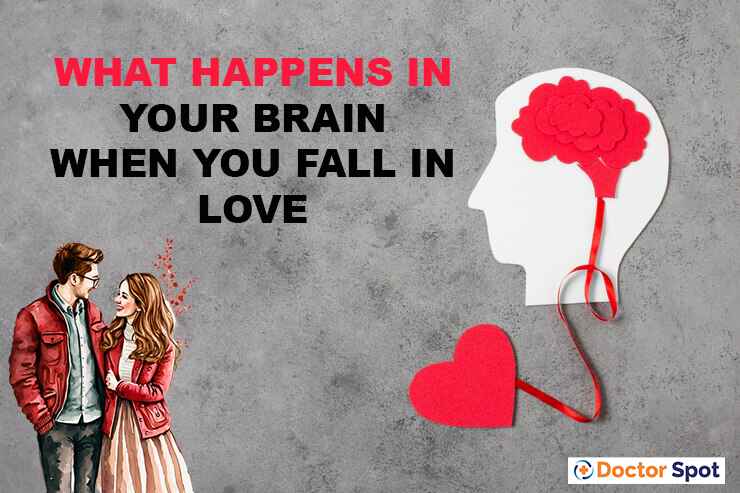What Happens in Your Brain When You Fall in Love | Neuroscience

Table of Contents
Introduction
Ever wonder what exactly happens in your brain when you fall head over heels in love? You’re not alone. Love is one of those magical, mystifying experiences that can turn your world upside down, and it’s all thanks to some fascinating brain chemistry. In this article, we’re diving deep into the nitty-gritty of what happens inside your noggin when Cupid’s arrow strikes. Buckle up because understanding the science of love might just give you a whole new appreciation for those butterflies in your stomach.
The Science Behind Love
Love isn’t just about that warm, fuzzy feeling inside; it’s actually a complex biochemical process. When you first lay eyes on someone special, a cascade of neurological events kick off. These initial attractions are influenced by various triggers, such as a person’s scent, appearance, or even their voice. Believe it or not, your brain is hard at work, setting the stage for something potentially magical.
The Brain’s Love Cocktail
When you fall in love, your brain becomes a veritable cocktail of chemicals that each play their unique roles.
Dopamine: The Pleasure Molecule
Often dubbed the “pleasure molecule,” dopamine spikes during those early stages of love, giving you that euphoric, can’t-stop-thinking-about-them feeling.
Oxytocin: The Bonding Hormone
Oxytocin, often referred to as the “bonding hormone,” is pivotal when it comes to forming a deep emotional connection with your partner.
Serotonin: Emotional Balance
Serotonin helps regulate your mood and emotional stability, keeping those highs and lows in check as you navigate this new romance.
Stages of Love in the Brain
Your brain goes through several stages when you fall in love, each with distinct neurological effects.
Lust: Driven by Physical Attraction
The first stage is all about lust, driven by sex hormones like testosterone and estrogen. It’s the initial spark that sets everything into motion.
Attraction: The Infatuation Phase
Next comes attraction, often the most exhilarating phase, where dopamine levels skyrocket, making you feel like you’re on cloud nine.
Attachment: Long-term Connection
Eventually, if things go well, you transition into attachment, where long-term bonding chemicals like oxytocin and vasopressin come into play.
Neurochemicals and Their Functions
Several neurochemicals are involved in the love process, each contributing to different sensations and behaviors.
Phenylethylamine (PEA)
PEA induces those giddy feelings and can even make your palms sweat when you’re around your crush.
Norepinephrine
Norepinephrine ramps up your heart rate and keeps you on your toes, contributing to the excitement and nervousness.
Endorphins
Endorphins generate a sense of well-being and are your brain’s natural painkillers, making love quite literally feel good.
The Role of Dopamine
Dopamine levels soar when you’re in love, affecting your brain’s reward system. This is why you feel an intense pleasure every time you see or think about your beloved, similar to the rush a gambler gets from hitting a jackpot.
Oxytocin and Bonding
Think of oxytocin as the glue that helps forge emotional bonds. Released during hugs, kisses, and intimate moments, this hormone enhances feelings of trust and intimacy in a relationship.
Serotonin and Mood Regulation
During the early days of love, serotonin levels might actually drop, leading to sensations of infatuation and obsession. It’s what keeps your thoughts continuously cycling back to that special someone.
Lust: The Initial Spark
Lust is where it all begins. Driven by sex hormones, this stage is purely based on physical attraction. It’s nature’s way of getting you interested and ensuring the survival of the species.
Romantic Attraction
Attraction takes it a step further. Your brain’s reward centers light up, similar to the effects of addictive substances. That’s why you can’t stop thinking about your new love.
Attachment and Long Bonding
As your relationship progresses, you move into the attachment phase. Vasopressin and oxytocin play crucial roles here, fostering long-term commitment and sense of security.
Love’s Impact on the Brain’s Reward System
Falling in love activates your brain’s reward system, making you feel motivated and energetic. It’s like hitting the jackpot every time you think about your partner.
Emotional and Psychological Effects
Falling in love can be emotionally tumultuous. Your mood swings from high to low, since your brain’s chemicals are continually in flux. These emotional rollercoasters are all part of the love experience.
The Dark Side of Love
Love isn’t always sunshine and rainbows. The same brain circuits that light up with joy during love can cause immense pain during heartbreak. When love ends, your brain has to cope with a deficit of all those feel-good chemicals, leading to emotional withdrawal.
Conclusion
So, there you have it—a detailed journey through what happens in your brain when you fall in love. From the initial spark of lust to the deep-seated roots of long-term attachment, love is a wondrous, complicated cocktail of neurochemicals that make life incredibly fascinating.
FAQs
How long does the ‘in-love’ feeling last in the brain?
Typically, the intense ‘in-love’ feeling driven by dopamine can last anywhere from a few months to a couple of years.
Can people become addicted to love?
Yes, given the similarities between love’s impact on the brain’s reward system and addictive substances, people can become addicted to the feeling of being in love.
What happens in the brain during a breakup?
During a breakup, the brain experiences a loss of those feel-good chemicals like dopamine and oxytocin, leading to feelings of withdrawal and emotional pain.
Are there differences in how men and women experience love in the brain?
While the basic biochemical processes are the same, studies suggest there might be some differences in how men and women experience and express love due to hormonal and social factors.
Can understanding the science of love help relationships?
Absolutely, knowing the hormonal and neurological roots of love can help couples navigate the complexities of relationships, making it easier to maintain long-term bonds.
Also read: Beer Health Benefits : Why Beer is Not Bad for Humans